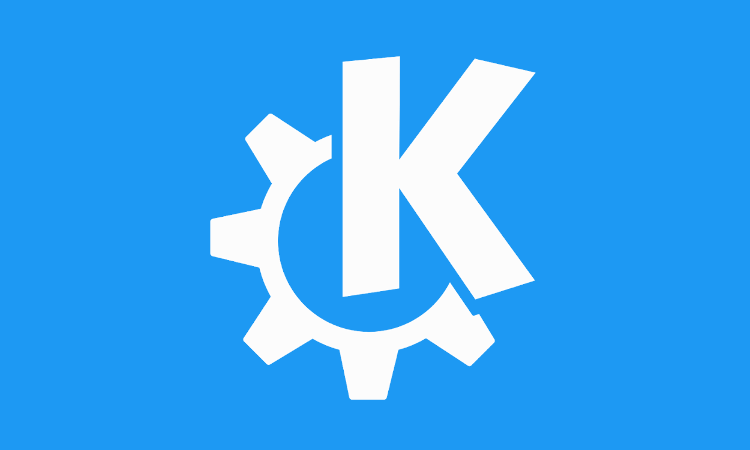Valve appear to have some pretty ambitious future plans for Steam, as we've seen recently in a leak (and not for the first time) that Valve has plans for ARM64 and Android support on Linux.
As usual, the leaks come thanks to SteamDB, which scrapes everything possible related to Steam. The latest "ValveTestApp3043620" appears to show various VR and standard non-VR games being tested on ARM64 with Proton (the Windows to Linux compatibility layer). When you scroll down the list it shows this is thanks to an open source project called FEX, which "allows you to run x86 and x86-64 binaries on an AArch64 host". It also mentions Waydroid, an open source container system that allows you to run Android apps and games on a Linux-based system.
Before people think it's about any Windows and macOS stuff here, it seems very specific to Linux. The configuration text mentions how it's from Windows to Linux.
Initially, I thought this would have been purely for the long-rumoured "Deckard" VR headset, which I believe based on previous leaks will have a standalone mode that runs Linux (with an Arm processor) as well as being able to be hooked up to a PC. So it would make a lot of sense for Valve to be working on a system like this to extend Proton support to ARM64 and get Android-based apps / games working as well.
However, since the list included a lot of standard non-VR games too, it does beg the question: might we actually see Steam for Arm-based desktop devices too and not just whatever the new VR headset turns out to be? Definitely interesting times ahead. Valve's funding of various Linux-related open source projects will continue to pay off in the long run with the Steam Deck and whatever comes next.
Scrolling through the list it showed Valve testing compatibility for the likes of Pistol Whip (VR), Gorilla Tag (VR), Left 4 Dead 2, Garry's Mod, Shadow of Mordor and a great many more including various smaller indie games too.
Thinking back to how the Proton compatibility layer was announced originally, it confirmed a long-held suspicion by many that the DXVK project was being funded by Valve to get the Vulkan-based translation layer for Direct3D into a good state. So who knows, perhaps Valve are doing similar funding for FEX and Waydroid developers well ahead of any announcements again.
Valve later wiped it (but SteamDB shows the history) and put it behind a protected token, so that SteamDB can't scrape it again in future until they set whatever it is live. Bit of a woops by Valve there, but this sort of thing has happened quite a few times in the past.
So it would make a lot of sense for Valve to be working on a system like this to extend Proton support to ARM64 and get Android-based apps / games working as well.
It was [Steam on Chromebooks](https://www.gamingonlinux.com/2022/11/steam-on-chromebook-is-now-in-beta-with-amd-support/) that made me think Valve were likely funding FEX.
Last edited by satoridepon on 22 Sep 2024 at 5:27 pm UTC
Interestingly, it seems they do not work with original Waydroid developers, looking at these [1] [2] GitHub pull requests (also this, maybe they just can't tell though), and instead developing their own fork?Well, nothing has been confirmed, but like with DXVK people wouldn’t admit it until the Valve announcements remember. All very hush as usual for Valve stuff, but it’s clearly pretty obvious now Valve are involved.
Maybe as a mid-gen release for the SteamDeck 2 similar to the OLED to keep interest up?
There are many interesting directions they could go with this.
It could provide a good way to test compatibility instead of completely jumping to ARM for the regular Deck
I think this is most likely going to be VR headset. It is basically a separate class of devices where it will be safe to test such things. Considering that Valve has been doing a lot of work with SteamVR recently only confirms it more
So it would make a lot of sense for Valve to be working on a system like this to extend Proton support to ARM64 and get Android-based apps / games working as well.
It was [Steam on Chromebooks](https://www.gamingonlinux.com/2022/11/steam-on-chromebook-is-now-in-beta-with-amd-support/) that made me think Valve were likely funding FEX.
Tought about that too. There was no official release of Steam "Borealis" project. It seems the project is in Limbo, since Nvidia scrapped it's Chromebook initiative. Maybe it never got to the performance level they hoped for? Could Valve made the decision to switch to a native ChromeOS client?
This said, Nvidia also displayed an arm based rtx powered laptop, running some form of Arch, in the same period. Could it be that?
[Reuters](https://www.reuters.com/technology/nvidia-make-arm-based-pc-chips-major-new-challenge-intel-2023-10-23/)
[PC-Gamer](https://www.pcgamer.com/nvidia-arm-gaming-laptops/)
Found it!
[Nvidia-Blog](https://blogs.nvidia.com/blog/geforce-rtx-arm-gdc/)
Last edited by Mohandevir on 22 Sep 2024 at 8:47 pm UTC
Maybe as a mid-gen release for the SteamDeck 2 similar to the OLED to keep interest up?
A global release of the Steam Deck would help with that, too... 🙄
As for steam, the main issue is that other than these new qualcomm chips (and apple's), the rest won't play anything reasonably recent well. FEX and box32/64 can be used to handle stuff, but if you see dev blogs, the good stuff is usually tested (and supported) with desktop cards.
Then there's the issue that the arm instructions to speed up translation and compatibility with x86 are optional, page sizes (x86 is 4k, arm is up to 64k) differ and translation is a pain.
Stores (steam, gog, etc), cloud help with making arm64 viable by offering native builds (thus marking the as such), devs could then just make arm builds available (target would still be a pain). As an example you can play stardew in arm for years just by replacing the c# binaries, for java games the same is also possible (more work but possible).
Right now we can also use box or fex to translate but why leave performance on the table when you are running on an already limited platform if you can avoid it.
It could provide a good way to test compatibility instead of completely jumping to ARM for the regular Deck
I think this is most likely going to be VR headset. It is basically a separate class of devices where it will be safe to test such things. Considering that Valve has been doing a lot of work with SteamVR recently only confirms it more
I wonder what prices we'll see for their new headset
What I find more interesting are these half life rumours, which might line up with a new vr headset.
I loved hl alyx but I played it on a cv1 occulus about 3 years ago, which was already outdated hardware but I found it cheap
Likewise I have a meta quest 1 which is outdated. But worth it to me, growing up loving half life, playing alxy was such a treat
I'd be interested in this new headset they're working on but I don't know if a pleb like me would even be able to afford one, I'd really like to own a headset owned by valve over Facebook but it's going to be another premium headset, and that means it's going to be pretty expensive
Maybe the deckard will let us play a new half life game fully standalone, either way I can't wait to find out what they're cooking up
Last edited by Doktor-Mandrake on 22 Sep 2024 at 11:00 pm UTC
What about x86_64 support? (Steam client is still 32-bit.)
It's bizarre it's 32-bit to this day. Kind of same level of weirdness as github.com not supporting IPv6 still.
Last edited by Shmerl on 22 Sep 2024 at 11:12 pm UTC
I wonder what prices we'll see for their new headsetIf Valve wants to compete with Meta the prices should be reasonable.
Stores (steam, gog, etc), cloud help with making arm64 viable by offering native buildsSteam already has native arm64 builds support on macOS, and I believe when Valve announces proton-arm it will come with additional announcement of general arm support on all platforms.
What about x86_64 support? (Steam client is still 32-bit.)If I understand correctly Steam is still 32-bit at its core for compatibility with legacy 32-bit games
What about x86_64 support? (Steam client is still 32-bit.)
To what end?
It works all fine on 64 bit,
and so many games need 32 bit support anyway.
If I were Valve, I wouldn't invest money
just to get more support questions
(about all those 32 bit games not running).
Last edited by Eike on 23 Sep 2024 at 12:04 pm UTC
Maybe they want to use something like the Qualcomm Snapdragon X Elite dor their new Steam Deck? Or maybe not because the graphics capabilities may not be powerfull ebough, I don't know.Seems doubtful that Valve will use Snapdragon X Elite for the new Steam Deck since as you mentioned, the graphic capabilities are not powerful enough. More likely the next Steam Deck will stay on x86_64 using an AMD APU until ARM64 gets to a point that it outperforms the AMD APU graphically.
Maybe it's for running Quest games (which run on Android) on (standalone) Deckard (which, I assume, will run on SeamOS). So developers don't have to do any porting when they want to deploy their game to both Quest and Deckard.AOSP(stock android and most of its forks) seamlessly handles the difference between architectures by locally compiling(, which also makes reverse engineering android apps embarrassingly easy, explaining the large android modding scene).
QuestOS seems to at least be compatible with this method and it could be the default.
Last edited by LoudTechie on 23 Sep 2024 at 2:56 pm UTC














 How to set, change and reset your SteamOS / Steam Deck desktop sudo password
How to set, change and reset your SteamOS / Steam Deck desktop sudo password How to set up Decky Loader on Steam Deck / SteamOS for easy plugins
How to set up Decky Loader on Steam Deck / SteamOS for easy plugins
See more from me